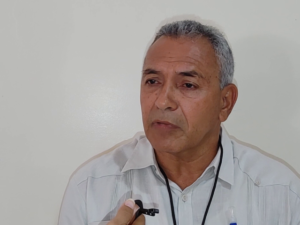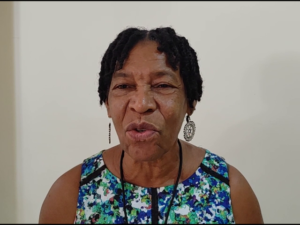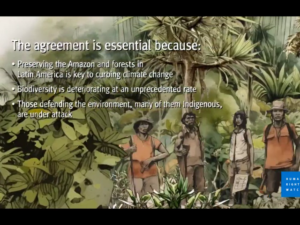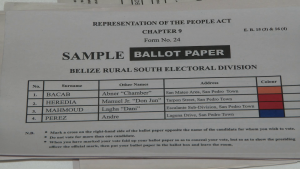Escazu Agreement Calls for Access to Environmental Justice
Belize ratified the Escazu Agreement last year, and since then, the government has been working on charting a strategic plan to implement the agreement. Named after the second sub-division in San Jose, Costa Rica, the agreement is a binding political treaty in Latin America and the Caribbean that seeks to improve access to information and justice in environmental matters, as well as participation in decision-making. It is the first of its kind of environmental agreement in the world. Now, Belize is working on implementing the agreement after consultations that looked at legislation and policies to guide the process. Today, the Ministry of Sustainable Development, Climate Change, and Disaster Risk Management, the Economic Commission for Latin America and the Caribbean (ECLAC), and the World Bank held a stakeholder engagement assembly in San Ignacio to begin the process. News Five’s Marion Ali has the story in this report.
Marion Ali, Reporting
Today, people who have an interest in the environment and access to justice in environmental matters gathered to give their input in the process of formulating a strategic plan to implement the Escazu Agreement. Minister of Sustainable Development, Orlando Habet, says there will be consultations after this stage.

Orlando Habet
Orlando Habet, Minister of Sustainable Development
“The consultation process now will begin with the roadmap being established, because it is a strategic plan. So now we’ll get the different communities, NGOs, CBOs, and all stakeholders who have an interest, indigenous groups, people from different races, whatever it is that should have an interest, because they also have the rights, so that we can have something that is very comprehensive, meaningful for Belize.”
During the event, Yaya Marin-Coleman from the UBAD Educational Fund sat in protest on the grounds that all relevant organisations should have been included in the process from this inception stage. Ruth Spencer is a community activist from Antigua and Barbuda. She supports the involvement of the NGOs that stand up against developments that threaten the environment.

Ruth Spencer
Ruth Spencer, Community Activist, Antigua and Barbuda
“Unless the people become empowered and take this Escazu Agreement in their hands and move forward with it, that’s where the power is. The power is in the people. Principle Ten was the name before the Escazu Agreement. It came out of the 1992 Rio Summit because the governments realized they alone don’t have all the answers when it comes to environmental matters. So one of the principles that came out of the Rio Summit was Principle Ten, which said stakeholders must be engaged in the process. And look how long it take for the Escazu Agreement to be signed, almost 20 something years. And this is the roadmap that’s being discussed today is for this greater stakeholder engagement. If that doesn’t happen, it’s just going to be something on paper.”
Minister Habet explained that invitations have been sent out countrywide to those organisations, and their input will be welcomed as soon as the consultancy phase, paid for by the Economic Commission for Latin America and the Caribbean, ECLAC, is completed. Habet adds that people who feel they are at risk of suffering severely from climate change and feel that they have been excluded have a chance to take part in the process and have a say in how developments in Belize proceed.
 Orlando Habet
Orlando Habet
“We have to involve the issues of economics, the social issues, and also the environmental issues. This is not only about climate change per se, because climate change is a political issue and a lot of it, as we know, is man-made. But how do we now look at the environment, our eco-systems, our forests. How do we protect those? And then, looking at our environmental justice – how to we protect those people who are the defenders of nature and of the environment. So we have already, for example, pieces of legislation like the Freedom of Information Act, which is crucial and then we have other policies which are in place for climate change, the national biodiversity, the Forest Department have different policies that guide and assist us.”
Marion Ali for News Five.







Facebook Comments